Ditapis dengan
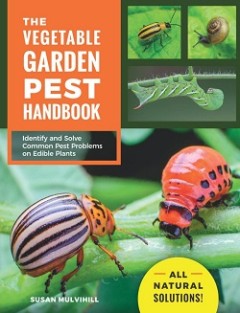
The Vegetable Garden Pest Handbook: Identify and Solve Common Pest Problems o…
In The Vegetable Garden Pest Handbook, you’ll find the simple, straightforward resources and tools you need to identify common pests of edible gardens and manage them without the use of synthetic chemical pesticides. Climate change and newly introduced insect pests are changing the world of gardening. Pests that once produced a single generation per year are now producing two or even three, …
- Edisi
- -
- ISBN/ISSN
- 978-0760370063
- Deskripsi Fisik
- 427 hlm.
- Judul Seri
- -
- No. Panggil
- -
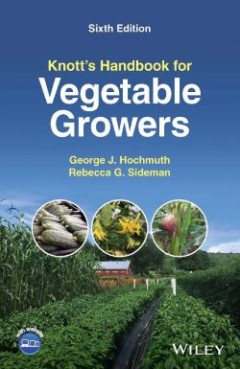
Knott's Handbook for Vegetable Growers
For more than 65 years, Knott’s Handbook for Vegetable Growers has provided generations of commercial growers with the most timely, accessible, and useful information available on the subject, containing key guidance on transplant production, planting rates and spacing, irrigation, fertilization, methods for controlling diseases, and insect pest identification, plus important information on t…
- Edisi
- 6
- ISBN/ISSN
- 978-1119811176
- Deskripsi Fisik
- 642 hlm.
- Judul Seri
- -
- No. Panggil
- -
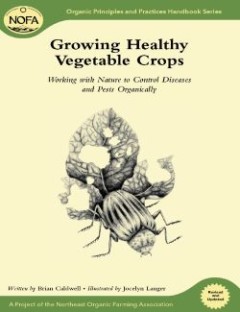
Growing Healthy Vegetable Crops: Working with Nature to Control Diseases and …
Part of the NOFA Guides. Includes information on: Basic concepts of pest control (host susceptibility, soil health, genetic resistance, ecosystem factors); Practical approaches (crop cultural practices, rescue treatments, special section on mammals and birds, food safety); Farm design for pest reduction (diversity, crop rotation); Unorthodox approaches (farmers out of the box); Identifying pest…
- Edisi
- -
- ISBN/ISSN
- 978-1603583503
- Deskripsi Fisik
- 122 hlm.
- Judul Seri
- Organic Principles and Practices Handbook
- No. Panggil
- -

Homesteading Handbook Vol. 2: Growing an Organic Vegetable Garden
The Homesteading Handbook vol. 2 provides the information you need to know in order to grow an organic vegetable garden in your backyard. A good organic garden is the key to a great homestead. Follow the directions in this easy-to-follow handbook and you'll soon have a bounty of delicious and healthy organic vegetables growing in your own backyard. The following topics are covered inside: What …
- Edisi
- -
- ISBN/ISSN
- 978-1500305451
- Deskripsi Fisik
- 302 hlm.
- Judul Seri
- Homesteading Handbooks
- No. Panggil
- -
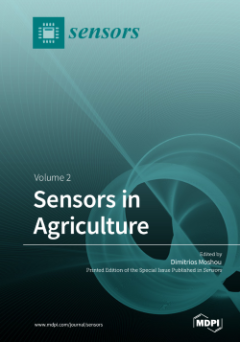
Sensors in Agriculture (Volume 2)
Agriculture requires technical solutions for increasing production while lessening environmental impact by reducing the application of agro-chemicals and increasing the use of environmentally friendly management practices. A benefit of this is the reduction of production costs. Sensor technologies produce tools to achieve the abovementioned goals. The explosive technological advances and develo…
- Edisi
- -
- ISBN/ISSN
- 978-3-03897-745-2
- Deskripsi Fisik
- 356 hlm.
- Judul Seri
- -
- No. Panggil
- -
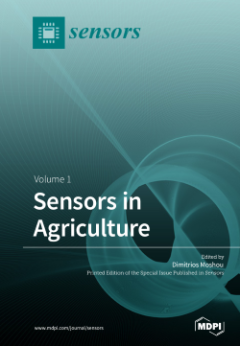
Sensors in Agriculture (Volume 1)
Agriculture requires technical solutions for increasing production while lessening environmental impact by reducing the application of agro-chemicals and increasing the use of environmentally friendly management practices. A benefit of this is the reduction of production costs. Sensor technologies produce tools to achieve the abovementioned goals. The explosive technological advances and develo…
- Edisi
- -
- ISBN/ISSN
- 978-3-03897-413-0
- Deskripsi Fisik
- 348 hlm.
- Judul Seri
- -
- No. Panggil
- -
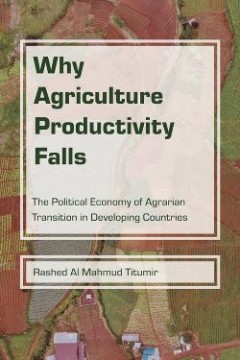
Why Agriculture Productivity Falls: The Political Economy of Agrarian Transition
Why Agriculture Productivity Falls: The Political Economy of Agrarian Transition in Developing Countries offers a new explanation for the decline in agricultural productivity in developing countries. Transcending the conventional approaches to understanding productivity using agricultural inputs and factors of production, this work brings in the role of formal and informal institutions that gov…
- Edisi
- -
- ISBN/ISSN
- 978-1-61249-835-5
- Deskripsi Fisik
- 231 hlm.
- Judul Seri
- -
- No. Panggil
- -
 Karya Umum
Karya Umum  Filsafat
Filsafat  Agama
Agama  Ilmu-ilmu Sosial
Ilmu-ilmu Sosial  Bahasa
Bahasa  Ilmu-ilmu Murni
Ilmu-ilmu Murni  Ilmu-ilmu Terapan
Ilmu-ilmu Terapan  Kesenian, Hiburan, dan Olahraga
Kesenian, Hiburan, dan Olahraga  Kesusastraan
Kesusastraan  Geografi dan Sejarah
Geografi dan Sejarah